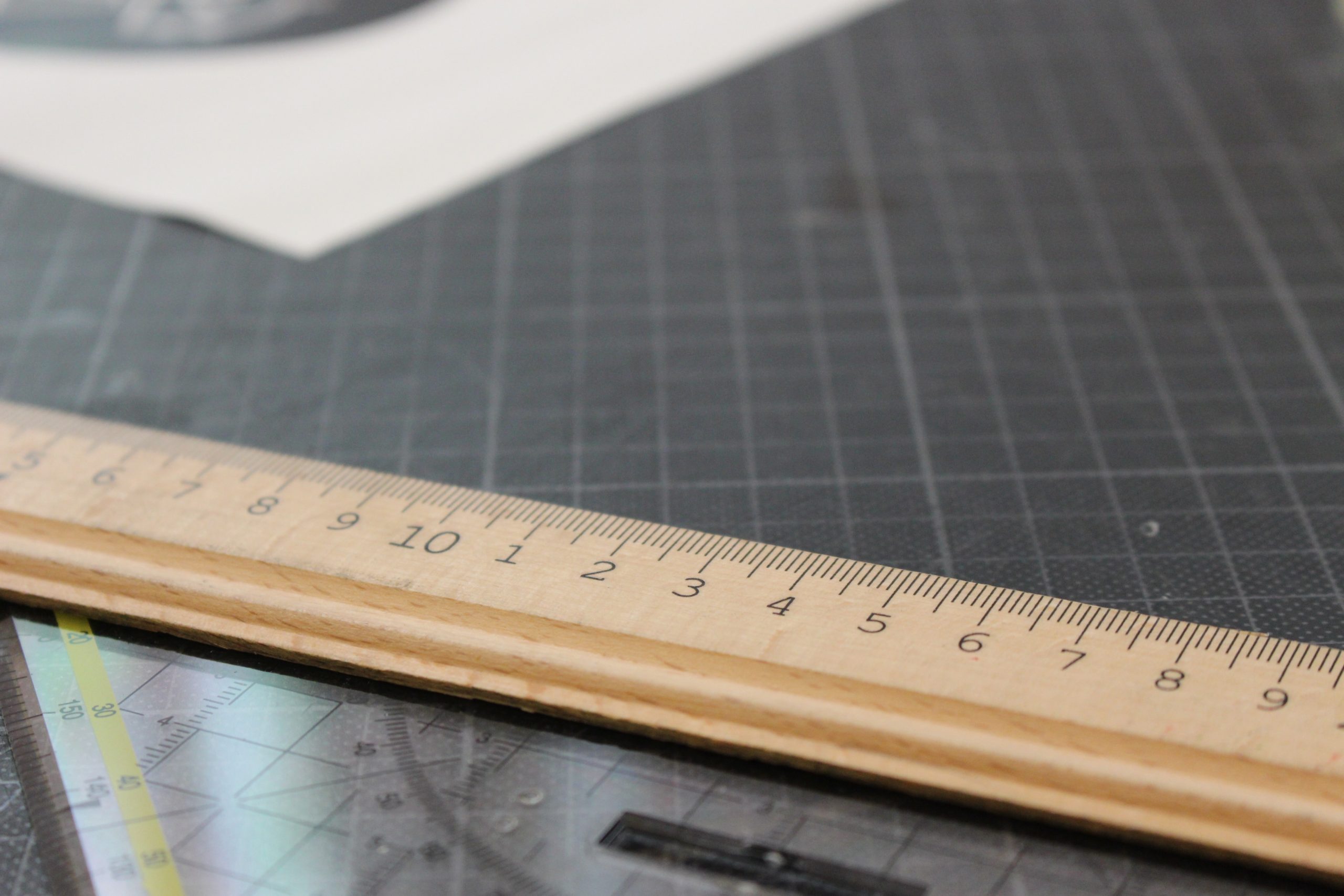For each chapter you write, your hope of creating a great story is slashed in half.
For each page you write, three pages are deleted.
For each sentence you write, another tear is shed.
You want to turn the awesome ideas in your head into a physical book in your hands, but every time you try to type out the story in your head it ends up looking like something out of your worst nightmares.
The more you write, the more you doubt that you’ll ever write a book you can be proud of.
This feeling is far too familiar to me. However, there is a way out. You don’t have to judge and scrutinize every single word you type.
Here are the eight tips I used to write even when it felt like my writing was too awful to continue.
1. Remember That Writing Terribly is Part of the Process
If you want to become a great author that publishes fantastic book after fantastic book, you first have to write mediocre and even bad books to get there.
Don’t worry if your writing isn’t where you want it to be!
You are just as good as you need to be to write a novel. And that’s the most important thing to do to eventually write a book you're proud of.
Being bad at writing isn’t an obstacle to becoming a great author, it’s one of the necessary steps to becoming a great author.
Like when we all first learn to walk, we have to first take clumsy awkward steps, and even fall down a couple times before we can walk and eventually run.
Don’t let not being “good enough” discourage you. Remember being bad isn’t an obstacle to becoming a great writer, it’s a step.
2. Understand what You Hate about Your Writing
Just saying you hate your writing won’t help anything. But saying specifically what you hate, actually might.
So write down exactly what you dislike about your writing.
Is it:
- Stiff characters?
- Unnatural dialog?
- Unrealistic fight scenes?
- Bland description?
Whatever it is that you dislike, write it down.
Identifying your weak points will give you clear feedback on where you need to improve.
If you just keep saying that your writing is “bad” then there is no clear way to improve your writing.
If there is no clear diagnosis, there’s no clear cure.
However, if you write a list of specific things you want to improve on, then there are much clearer and helpful answers on how to improve your weak points.
Writing them down will also help you to not constantly think those thoughts while you are writing. Your brain now knows that you have acknowledged the issues and will take care of them, so your brain doesn’t have to keep reminding you every three seconds.
Writing down your problems and getting your self critic out of your head makes it easier and enjoyable to write.
3. Shut down your editing mind when you are writing
There are only two times to be critical of your writing
- When you are writing a list of your weaknesses (like in step 2)
- When you are editing
Not any other time.
Especially when you are writing.
When you are writing, your only goal is to write those words! So over-analyzing is only going to hinder that goal.
So when you sit down to write, don’t try to be perfect and don’t overthink everything you type. When you write, you write. Anything else will slow that down.
4. Find Encouragement
Photo Credit: https://writix.co.uk/
Writing a novel is no easy feat.
It's so easy to get wrapped up in all the issues with your writing, especially when you’re writing the first draft.
Sometimes your brain feels like a fire alarm that goes off every time it notices a tiny issue with your story.
“Ugh, this dialog is so awkward!” WEEE WOOO WEEE WOOO!
“This has already been done before...” WEEE WOOO WEEE WOOO!
“This scene is not going the way I wanted it to.” WEEE WOOO WEEE WOOOOOOO!
It can be really discouraging. You start to think that there is nothing good about your writing. And feel like there’s no point to writing.
But there’s always something good to acknowledge. If you can’t think of anything, then ask a friend or family member who has read your writing.
We tend to be quite blind when it comes to our own writing. Asking a trusted person can help with that.
More likely than not they’ll have some good feedback. Of course they’ll say what could be improved, but also what they enjoyed.
Another thing you can do to stay encouraged is after each writing session, write down on a piece of paper your favorite thing you wrote that day.
By the end of the week, month, or year, you’ll have a long list of all the little things that you were proud of.
When you write things down, it lets your brain know that these things are important, and you will start to automatically look for them as you write and notice them more and more the longer you keep up with your daily favorite list.
This will not only help break up the constant bombardment of negative thoughts, but also give you motivation to continue writing everyday.
5. Tackle Your Writing Fears Head-First
When my sister Erin and I were outlining our first novel, we just kept going in circles with our ideas and were making no headway.
And then we realized that it was a fear that was holding us back from making progress.
For my sister and I, that fear was writing something cliche.
It may sound silly that this was something that was blocking us from writing our story, but every time we tried to come up with ideas for what was going to happen in our story, we would say a variation of one of these things,
“Hasn’t that been done before?”
“Isn’t that cliche?”
Or,
“That’s too predictable.”
If more than one person had written something similar to something that we wanted to happen in our story, then we would immediately shut down the idea. So our story never went anywhere.
So how did we overcome this?
We did the exact thing we feared the most. Not only did we decide to write a cliche story, but we decided that we were going to write the most cliche story.
It was going to be about a farm boy; he was going to have a wizard mentor; there was an evil overlord, and a journey to defeat him.
Now writing a cliche story wasn’t a fear, it was a goal. We relieved all pressure to write a “unique” and “fresh” story.
With that expectation gone, it was much easier and more fun to write than it ever had been before.
Did we write the most amazing story? No, but we did write an entire novel. And that gave us the experience and confidence to write better stories. Making it absolutely worth it.
So what fear is keeping you from writing? Take a quick break from reading this article and really think about it.
What mistake do you worry about making most in your writing?
What would happen if you went all in and wrote that mistake intentionally?
Most likely it would relieve the pressure of trying to be perfect, give you more freedom, write more easily and grow from it.
If you know beforehand that your story isn’t going to be the greatest story in the world, then you won’t hate your writing when your story isn’t as good as you would like it to be.
6. Focus on Getting 1% Better Each Time
Trying to get everything perfect on your first try will leave you frustrated and disappointed.
But staying stagnant and not intentionally trying to improve each time you write will again leave you frustrated and disappointed.
The key is to find the happy middle in between these two extremes.
A place where you are putting enough pressure on yourself to make progress, but not too much to the point where your high expectations make you hate everything that doesn’t live up to them.
So instead of doing nothing, or trying to be perfect, focus on just being 1% better each time you write. Steps, no matter how small, eventually lead somewhere.
Only trying to be 1% better each time you write is very doable and won’t paralyze you with pressure. But it’s also a good enough goal to ensure that you're making progress, which will keep you motivated.
So next time you sit down to write, ask yourself, "What is one thing I can improve today as I write?"
7. Compare Your Writing to Your Past Writing
You’ve probably heard the saying: “ Don’t compare your day one to somebody else's day one hundred.”
Because it’s totally true!
Comparing your writing to somebody else’s writing who’s been doing it for years and even decades is just crazy!
It’s like having a little league football team go against an NFL team. And when the little league team gets crushed they say, “Well, since we got crushed by them, we’ll never be as good as they and won’t be successful football players. Might as well just give up.”
That probably sounds ridiculous, but we writers do it all the time! How many times have you thought, “My story is not as good as so-and-so, so I guess I’ll never be a successful author and write great stories.”
Even the greatest authors of all time had humble beginnings. The reason why they’re so good isn’t because they were born that way, it was because of their love to create stories.
And because of that love, they wrote stories over and over and over again until they became one of the best.
If they did it, so can you. As long as you don’t let comparison beat you down and focus on how far you’ve come, not how far there is to go.
So instead of comparing your writing with another author’s writing, compare your writing to your past writing.
When you do that, you will see how far you have come. It may seem like you have made no progress, but just one quick look at something you’ve written a couple years ago will definitely put into perspective all the growth you have made.
And if you have grown this much, who knows how much better you can get if you only keep writing?
8. Write Something Else
There are times to push through something tough, and then there are times to take it as a sign to move on to something else.
There are a lot of writers that say to push through and write no matter what; even if it feels like it’s taking every bit of your strength and willpower to do so.
However, I’ve read books where I was able to pick up on when the author was really struggling and disliking what they were writing. And when the author dislikes what they are writing, it shows. And this makes it hard- if not impossible- to enjoy the story as a reader.
So this is why I don’t give the recommendation to grit your teeth and write even when a scene is just not working.
But this doesn’t mean you have to stop writing altogether. You don’t even have to stop writing that particular novel!
If you have an outline, try writing your story out of chronological order
Instead of writing all the events in order, try to write whichever scene you feel most inspired to write.
And after taking a break from writing that scene you were struggling with, when you come back to it, you’ll have a much easier and more enjoyable time writing it.
So clear out all thoughts of having to write your story in chronological order for a moment. If you could write anything you wanted in your story what would it be?
Are you feeling moody and want to write the dark moment?
Do you feel like writing something action-packed and write the climax?
Or do you want to write that really sweet relationship-building scene with your two favorite characters?
Writing in the mood you feel will make it much easier to convey the mood of the scene. This will ensure that your scenes have the emotional impact that you want them to.
And then after you take your break and clear your mind, make sure to get back to what you were writing before!
Hating what you're writing is a lot more common than you may think. It’s probably happened to every writer at least once in their life.
You may go through periods of time where you love your writing, and then others where you hate your writing.
It’s normal to go back and forth between the two.
But using these tips has helped me continue writing through the times where I loved it and when I hated it.
What helps you continue writing even when you feel like your writing is too terrible to continue?
Be sure to share it in the comments!
- Kathleen Ramm
Kathleen Ramm
Kathleen Ramm’s first writing project was a rip-off of the tortoise and the hare. She continues to write because when she was little she tried to enter Narnia multiple times, but they never let her in. Her only other alternative was to create worlds and characters of her own.
Kathleen joined Kingdompen because she was inspired to help writers at any level to write badly so that they can write goodly.
She enjoys writing with her siblings, doing Taekwondo, and sketching. Her greatest accomplishment is getting first place in a Taekwondo tournament (and there was only one other contestant).
Get Your Free Guide
Sign up to get your free guide on building a writing habit!










Great article!! Very helpful tips, thank you!
I love writing up my own world; anything can and does happen in a world with firebirds, griffons, and dragons. Especially when the griffons and firebirds are at odds all the time….
When I’m stuck writing, I read the Silmarillion or some other awesome book.
Or watch a movie I know will give cool ideas, such as The Amazing Spider-Man (1 or 2) for sad or battlish scenes (or even funny, as in the “you’re in trouble” scene with the coffee spill.)
Reign of Fire for battle and lots of tears
Lord of the Rings for…. um, any kind of scene?
Tolkien is amazing inspiration for me personally but any favourite book works
Sorry, that was long